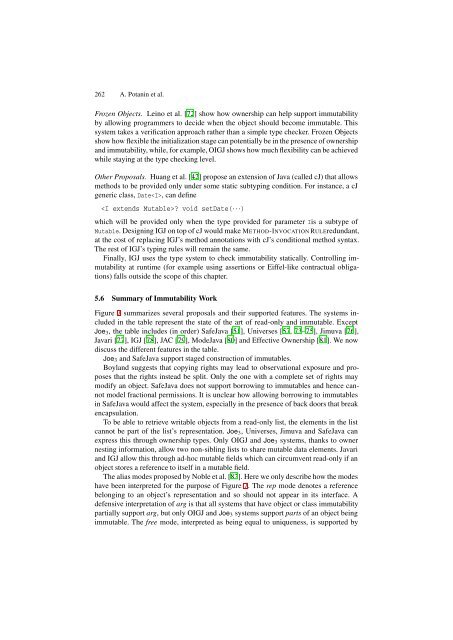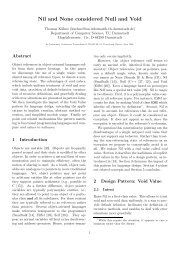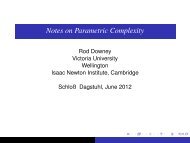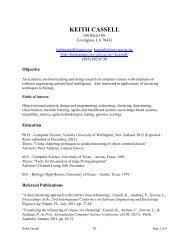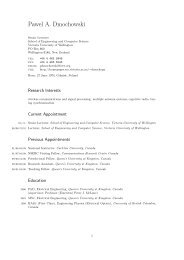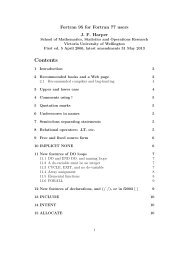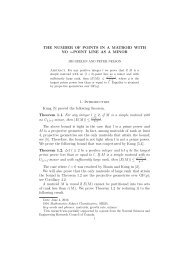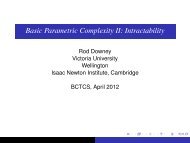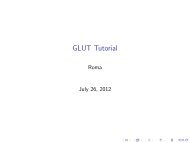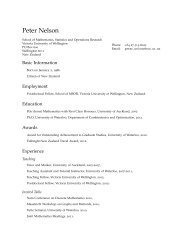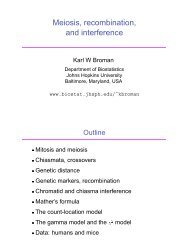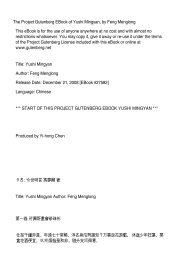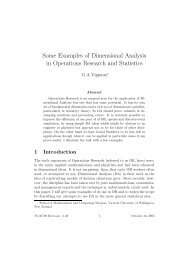Immutability - ECS | Victoria University of Wellington
Immutability - ECS | Victoria University of Wellington
Immutability - ECS | Victoria University of Wellington
You also want an ePaper? Increase the reach of your titles
YUMPU automatically turns print PDFs into web optimized ePapers that Google loves.
262 A. Potanin et al.<br />
Frozen Objects. Leino et al. [72] show how ownership can help support immutability<br />
by allowing programmers to decide when the object should become immutable. This<br />
system takes a verification approach rather than a simple type checker. Frozen Objects<br />
show how flexible the initialization stage can potentially be in the presence <strong>of</strong> ownership<br />
and immutability, while, for example, OIGJ shows how much flexibility can be achieved<br />
while staying at the type checking level.<br />
Other Proposals. Huang et al. [42] propose an extension <strong>of</strong> Java (called cJ) that allows<br />
methods to be provided only under some static subtyping condition. For instance, a cJ<br />
generic class, Date, can define<br />
? void setDate(···)<br />
which will be provided only when the type provided for parameter Iis a subtype <strong>of</strong><br />
Mutable. Designing IGJ on top <strong>of</strong> cJ would make METHOD-INVOCATION RULEredundant,<br />
at the cost <strong>of</strong> replacing IGJ’s method annotations with cJ’s conditional method syntax.<br />
The rest <strong>of</strong> IGJ’s typing rules will remain the same.<br />
Finally, IGJ uses the type system to check immutability statically. Controlling immutability<br />
at runtime (for example using assertions or Eiffel-like contractual obligations)<br />
falls outside the scope <strong>of</strong> this chapter.<br />
5.6 Summary <strong>of</strong> <strong>Immutability</strong> Work<br />
Figure 7 summarizes several proposals and their supported features. The systems included<br />
in the table represent the state <strong>of</strong> the art <strong>of</strong> read-only and immutable. Except<br />
Joe 3 , the table includes (in order) SafeJava [51], Universes [57, 73–75], Jimuva [76],<br />
Javari [77], IGJ [78], JAC [79], ModeJava [80] and Effective Ownership [81]. We now<br />
discuss the different features in the table.<br />
Joe 3 and SafeJava support staged construction <strong>of</strong> immutables.<br />
Boyland suggests that copying rights may lead to observational exposure and proposes<br />
that the rights instead be split. Only the one with a complete set <strong>of</strong> rights may<br />
modify an object. SafeJava does not support borrowing to immutables and hence cannot<br />
model fractional permissions. It is unclear how allowing borrowing to immutables<br />
in SafeJava would affect the system, especially in the presence <strong>of</strong> back doors that break<br />
encapsulation.<br />
To be able to retrieve writable objects from a read-only list, the elements in the list<br />
cannot be part <strong>of</strong> the list’s representation. Joe 3 , Universes, Jimuva and SafeJava can<br />
express this through ownership types. Only OIGJ and Joe 3 systems, thanks to owner<br />
nesting information, allow two non-sibling lists to share mutable data elements. Javari<br />
and IGJ allow this through ad-hoc mutable fields which can circumvent read-only if an<br />
object stores a reference to itself in a mutable field.<br />
The alias modes proposed by Noble et al. [82]. Here we only describe how the modes<br />
have been interpreted for the purpose <strong>of</strong> Figure 7. The rep mode denotes a reference<br />
belonging to an object’s representation and so should not appear in its interface. A<br />
defensive interpretation <strong>of</strong> arg is that all systems that have object or class immutability<br />
partially support arg, but only OIGJ and Joe 3 systems support parts <strong>of</strong> an object being<br />
immutable. The free mode, interpreted as being equal to uniqueness, is supported by


